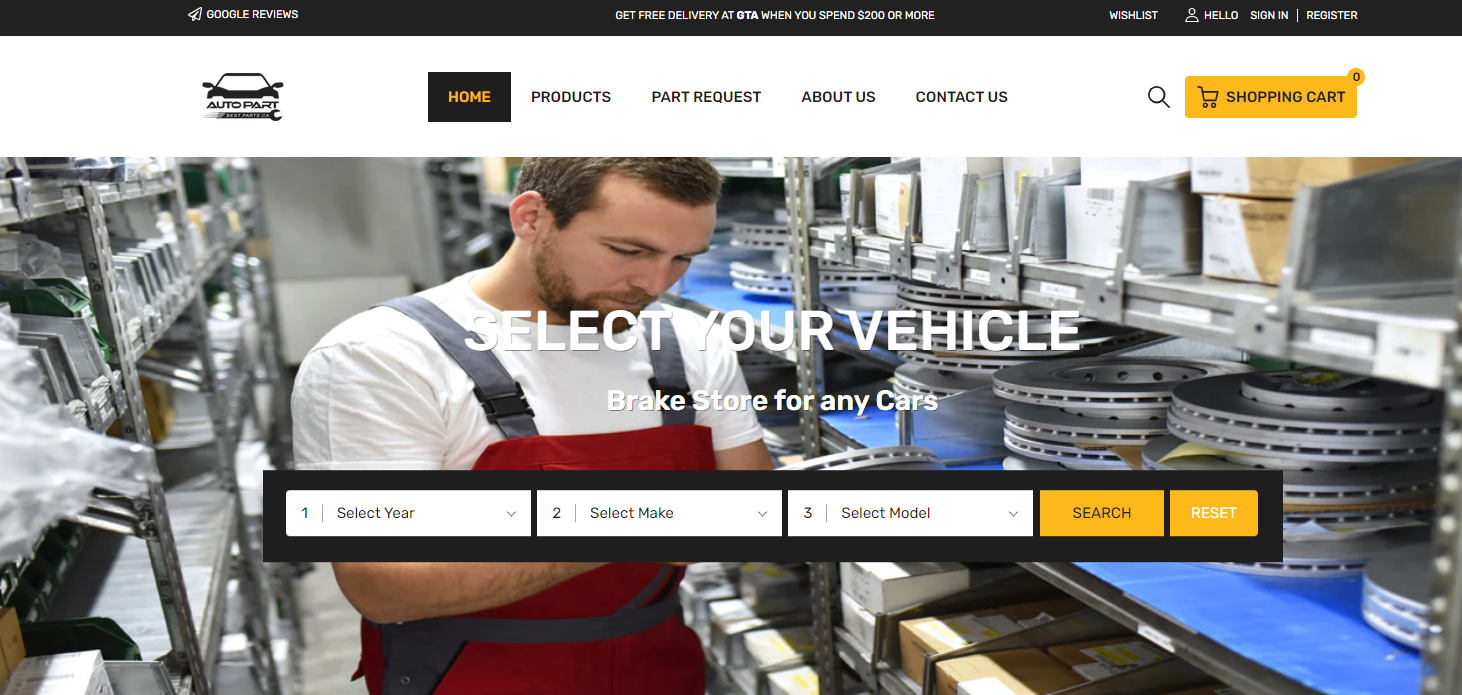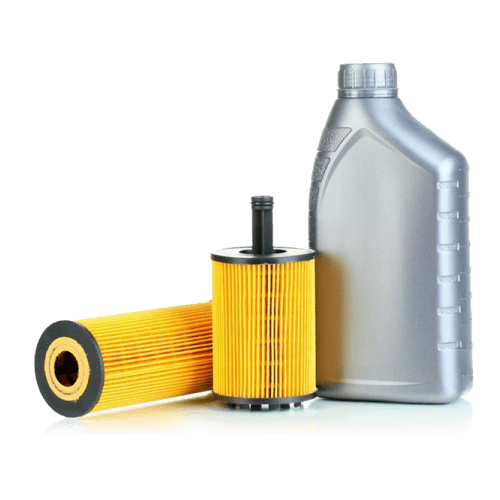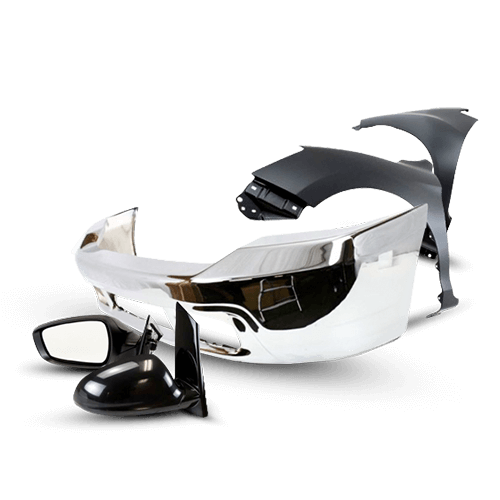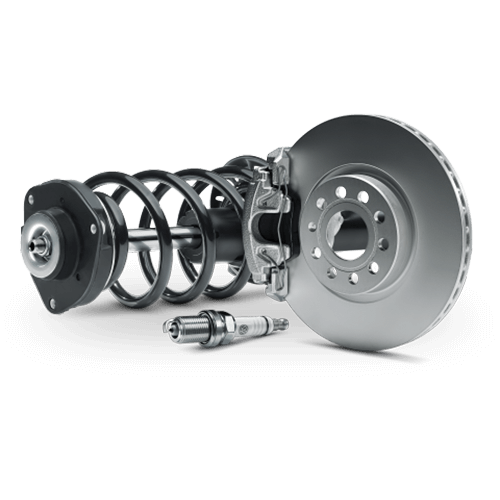
What Are Coated Brake Rotors and Their Benefits?
When it comes to automobile safety, the braking system is critical. Brake rotors are an essential component of this system, and technological advances have resulted in the development of coated brake rotors. Brake rotors are essential components of a vehicle's braking system, providing the necessary friction to slow or stop the vehicle. Coated brake rotors have emerged as a popular choice among automotive enthusiasts as technology advances. These rotors are treated with a special coating that improves their performance, durability, and longevity. We will define coated brake rotors and their benefits in this article. So, let's look more closely at the advantages of coated brake rotors.
What Are Coated Brake Rotors?
Coated brake rotors, also known as painted or plated brake rotors, are a type of brake rotor that has an extra layer of protection applied to it. This coating is typically applied to the rotor's surface, and it offers several advantages over traditional uncoated rotors. Because the coating is intended to improve performance, durability, and longevity, it is a popular choice among automotive enthusiasts.

How to maintain brake rotors?
Brake rotors must be properly maintained to ensure their longevity and optimal performance. Here are some pointers to help you effectively maintain your brake rotors:
Regular Inspections
Visually inspect your brake rotors on a regular basis. Look for signs of wear on the rotor surface, such as deep grooves, cracks, or unevenness. It is recommended that you replace the rotors if you notice any significant damage. Brake Pad Checks: Inspect the brake pads in conjunction with the rotors. Worn-out or damaged brake pads can negatively impact the rotors. Ensure that the brake pads have sufficient thickness and are evenly worn. Replace them if necessary.
Brake Fluid Replacement
Brake fluid is critical to the performance of the braking system. Regularly check the brake fluid level to ensure it is within the recommended range. If the fluid appears dirty or contaminated, replace it according to the manufacturer's instructions.
Prevent Overheating
Excessive heat can cause damage to brake rotors. To prevent overheating, avoid aggressive driving habits such as constant heavy braking or riding the brakes. Instead, practice smooth and controlled braking techniques to minimize heat buildup.
Avoid Excessive Brake Usage
Whenever possible, try to avoid unnecessary braking. To reduce the frequency of heavy braking, anticipate traffic conditions and maintain a safe distance from the vehicle ahead. This practice not only helps to keep the rotors in good condition, but it also improves fuel efficiency.
Avoid abrupt stops
Sudden or panic stops can put too much strain on the brake rotors, causing damage. Reduce speed gradually whenever possible by easing off the accelerator and applying gentle pressure to the brakes.
Avoid braking drag
When the brake pads do not fully release from the rotors, they rub against each other, causing brake drag. This can lead to faster rotor wear and lower fuel efficiency. If you notice any signs of brake drag, such as a burning odor or increased fuel consumption, have your brake system inspected and repaired as soon as possible.
Avoid driving in harsh conditions
Driving on rough terrain or through deep water, for example, can subject the brake rotors to additional stress and potential damage. Avoid such conditions whenever possible, or take the necessary precautions to protect the braking system.
Follow the manufacturer's instructions
Always follow the maintenance and service interval guidelines provided by the vehicle manufacturer. They provide specific brake rotor maintenance recommendations based on the make and model of your vehicle.
You can keep your brake rotors in good condition and provide reliable braking performance by following these maintenance tips. Remember, if you're unsure about any maintenance procedures or notice any significant problems with your brake system, seek the advice of a professional mechanic.

What Are Coated Brake Rotors and Why Are They Better?
Coated brake rotors, also known as painted or plated brake rotors, are a type of brake rotor that has an extra layer of protection applied to it. This coating is applied to the rotor's surface and offers several advantages over traditional uncoated rotors. Let's take a closer look at coated brake rotors and their benefits:
improved performance
Coated brake rotors outperform uncoated rotors in terms of performance. These rotors' protective coating improves heat dissipation, lowering the risk of brake fade during heavy or prolonged braking. Coated rotors provide better stopping power and shorter stopping distances by maintaining consistent friction levels, ultimately improving road safety.
Corrosion Resistance
One of the significant advantages of coated brake rotors is their corrosion resistance. The protective coating acts as a barrier against moisture, road salt, and other corrosive elements that can deteriorate the rotor's surface over time. This corrosion resistance ensures the longevity of the rotors, reducing the need for premature replacements and saving costs in the long run.
Extended Rotor Life
Coated brake rotors have a longer lifespan than standard rotors. The protective coating helps to prevent wear and tear, preserving the structural integrity of the rotor over time. Vehicle owners can enjoy the Advantages of coated brake rotors for a longer period of time before needing replacements because they have a longer lifespan.
Overall, coated brake rotors offer enhanced performance, corrosion resistance, reduced noise and vibration, aesthetic appeal, easy maintenance, and extended rotor life. These advantages make them a better choice for vehicle owners looking to improve their braking system's performance, durability, and overall driving experience.

What is the biggest problem with coated brake rotors?
The most serious issue with coated brake rotors is the potential for the protective coating to wear off over time, especially in harsh driving conditions. While the coating is intended to be long-lasting and durable, it can gradually degrade and wear down due to friction and heat exposure. The rotor's surface becomes exposed as the coating deteriorates, raising the possibility of corrosion and lessening the benefits of the coating overall.
It's important to note that the wearing off of the coating does not affect the rotor's performance or safety. The rotor itself is still operational and can provide reliable braking. However, the loss of the protective coating makes the rotor more prone to corrosion and may necessitate more frequent cleaning and maintenance to ensure optimal performance and longevity.
To avoid this problem, adhere to proper maintenance procedures, avoid harsh driving conditions, and inspect the brake rotors on a regular basis for signs of wear or coating degradation. Vehicle owners can maximize the lifespan and benefits of coated brake rotors by remaining proactive and promptly addressing any concerns.
read more: A comprehensive guide to maintaining car brakes

What is Ultracoat Z360?
Ultracoat Z360 is a cutting-edge coating technology designed specifically for brake rotors. It is a proprietary coating that improves the performance, durability, and appearance of coated brake rotors. The name ""Z360"" signifies its comprehensive coverage and protection provided to the entire rotor surface.
The Ultracoat Z360 coating has been designed to offer superior corrosion resistance, heat dissipation, and noise reduction. It acts as a barrier, protecting the rotor from moisture, road salt, and other corrosive elements that can cause deterioration over time. Ultracoat Z360 helps to extend the lifespan of brake rotors by preventing corrosion, reducing the need for premature replacements.
Furthermore, Ultracoat Z360 improves heat dissipation, allowing for improved thermal management during braking. This feature reduces the risk of brake fade, which occurs when excessive heat buildup causes a reduction in braking performance. Ultracoat Z360-coated rotors provide improved heat dissipation, increased stopping power, and shorter stopping distances.
In addition, Ultracoat Z360 is engineered to reduce braking noise and vibration. The coating acts as a dampening layer, reducing the likelihood of brake squeal and excessive vibrations. This contributes to a quieter and more comfortable driving experience for vehicle owners. Ultracoat Z360 provides aesthetic customization options. The coating comes in a variety of colors, allowing car enthusiasts to personalize their brake system and match the style and appearance of their vehicle.
Overall, Ultracoat Z360 is a specialized coating technology that combines corrosion resistance, heat dissipation, noise reduction, and aesthetic customization. It enhances the performance and longevity of coated brake rotors, providing vehicle owners with a reliable and visually appealing braking solution.

What are the advantages of coated brake rotors?
In this section of the article ""what are coated Brake Rotors and Their Benefits"" will look at the benefits of coated brake rotors. Coated brake rotors offer several advantages compared to traditional uncoated rotors. Let's explore some of the key advantages of coated brake rotors:
Enhanced Performance and Braking Efficiency
Coated brake rotors offer improved performance and braking efficiency compared to their uncoated counterparts. The coating on these rotors provides better heat dissipation, reducing the risk of brake fade during heavy or prolonged braking. By maintaining consistent friction levels, coated rotors offer better stopping power and shorter stopping distances, ultimately enhancing safety on the road.
Corrosion Protection
One of the most significant advantages of coated brake rotors is their resistance to corrosion. The protective coating protects the rotor's surface from moisture, road salt, and other corrosive elements. This corrosion resistance ensures the rotors' longevity, reducing the need for premature replacements and lowering long-term costs.
Aesthetically Pleasing
Coated brake rotors add an aesthetic touch to the vehicle's appearance in addition to their functional benefits. The coating comes in a variety of colors, allowing car enthusiasts to customize their brake system to their liking. Coated brake rotors, whether in a sleek black coating or a vibrant red finish, can improve the visual appeal of a vehicle's wheels.
Easy Maintenance
When compared to uncoated rotors, maintaining coated brake rotors is relatively simple. The protective coating helps to keep brake dust and debris off the rotor's surface. This means less frequent cleaning and maintenance, saving vehicle owners time and effort!
Reduced Noise and Vibration
Coated brake rotors are designed to minimize noise and vibration during braking. The coating functions as a dampening layer, reducing the possibility of brake squeals or excessive vibrations. This not only improves the driving experience overall, but it also contributes to a quieter and more comfortable ride.
Additional Rotor Life
Coated brake discs have a longer lifespan than standard rotors. Applying a protective coating helps to stop deterioration and ensures that the rotors' structural integrity is maintained for a longer time. As a result, vehicle owners can benefit from coated brake rotors' advantages for a longer period of time before needing replacements.

Conclusion
At the end of the article, ""What are coated brake rotors and their benefits?"" It can be said that coated brake rotors provide several advantages, including improved performance, corrosion resistance, reduced noise and vibration, aesthetic appeal, ease of maintenance, and longer rotor life. These benefits make them an appealing option for vehicle owners looking to improve the performance and durability of their braking system. Whether you're a car enthusiast or simply concerned about your safety on the road, coated brake rotors are an excellent choice.
FAQ
Are coated brake rotors suitable for all vehicles?
- Yes, coated brake rotors are compatible with most vehicles, including cars, trucks, and SUVs.
Do coated brake rotors require any special maintenance?
- Coated brake rotors do not require any special maintenance. They can be maintained similarly to traditional rotors. Regular brake system maintenance, including periodic inspections, pad replacements when worn, and fluid checks, is sufficient to ensure the optimal performance of coated brake rotors.
Can coated brake rotors be resurfaced?
- It is not recommended to resurface coated brake rotors, as it may compromise the integrity of the protective coating. It is best to replace the rotors when they reach their minimum thickness.
Are coated brake rotors more expensive than traditional rotors?
- Coated brake rotors are generally priced competitively with traditional rotors, considering the additional benefits they offer. The cost may vary depending on the vehicle make and model.
Can coated brake rotors be used with any type of brake pads?
- Yes, coated brake rotors are compatible with a wide range of brake pads, including both ceramic and semi-metallic formulations.
Are there any disadvantages to using coated brake rotors?
- The only potential disadvantage of coated brake rotors is that the coating may wear off over time, especially under harsh driving conditions. However, this does not affect the rotor's performance or safety.























































